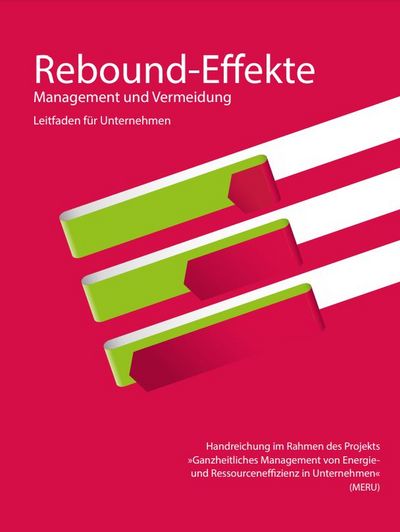Holistic Management of Energy and Resource Efficiency in Companies MERU
We are nearing the planet’s ecological limits, in large part due to current consumption and production patterns of industrial countries. Although innovations have been able to considerably increase energy and resource efficiency in recent years, absolute consumption of energy and raw materials has not sufficiently decreased. One reason for this is the so-called rebound effect. If, for instance, consumption costs decline because of increased efficiency, money is saved. If this money is used for new goods and investments, new consumption of energy and material usually occurs. The rebound effect can thus partially or even completely nullify the positive effects of efficiency successes.
In recent years, important findings on rebound effects in consumption have been gained. In contrast, little research has been done to date on how such effects occur in production or within companies. This is where the project MERU comes in. Its goal is to conceptualize and empirically investigate rebound effects in companies.
Based on current literature, possible rebound effects in companies are first identified and classified according to their causes, mechanisms and consequences. With this framework, the IÖW examines in two company case studies and a broad company survey how efficiency measures operate in firms. For example, if a company changes its product design and saves material per unit, the project team investigates whether the company is thereby also saving costs and how it deals with it if applicable. A rebound effect could for instance occur if the company expands its production as a result of efficiency-related cost savings.
Based on the findings, the project team develops strategies and methods on how companies themselves can identify rebound effects as well as manage and mitigate them holistically. These are prepared in a guideline for companies, associations and consulting firms. Furthermore, policy recommendations are made for the public sector and papers are published in scientific journals.
As practice partners, the German Industry Initiative for Energy Efficiency (DENEFF), the Baden Wuerttemberg Agency for Environmental Technology and Resource Efficiency (Umwelttechnik BW) as well as ten companies of different size from the manufacturing industry (e.g. household appliances) and the service sector (e.g. telecommunication) are involved in the project.
Project website: https://www.meru-projekt.de/




